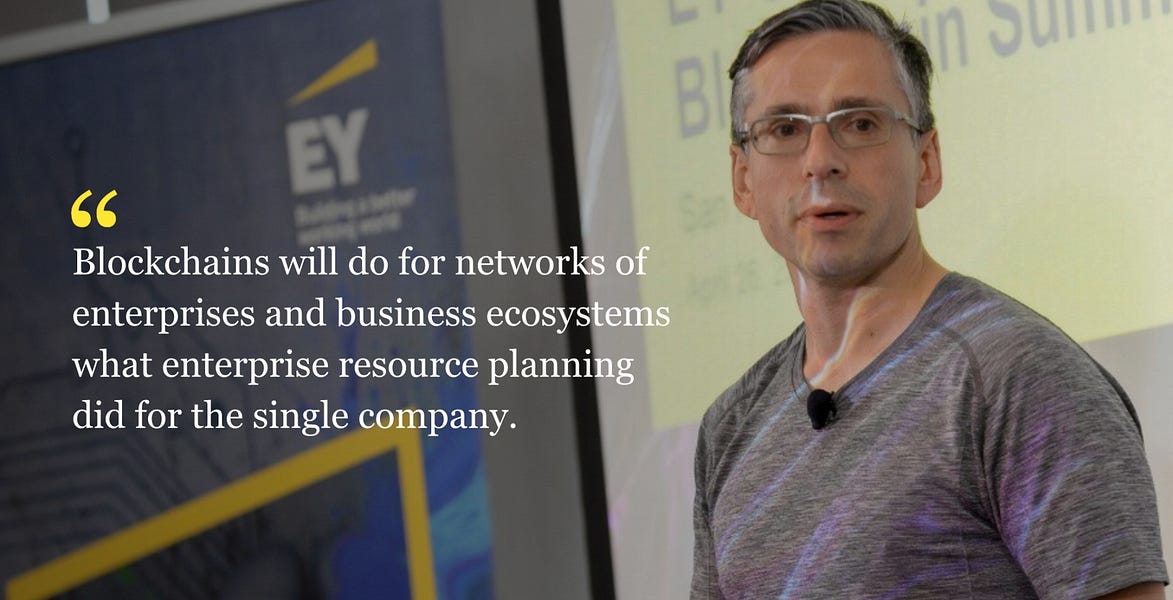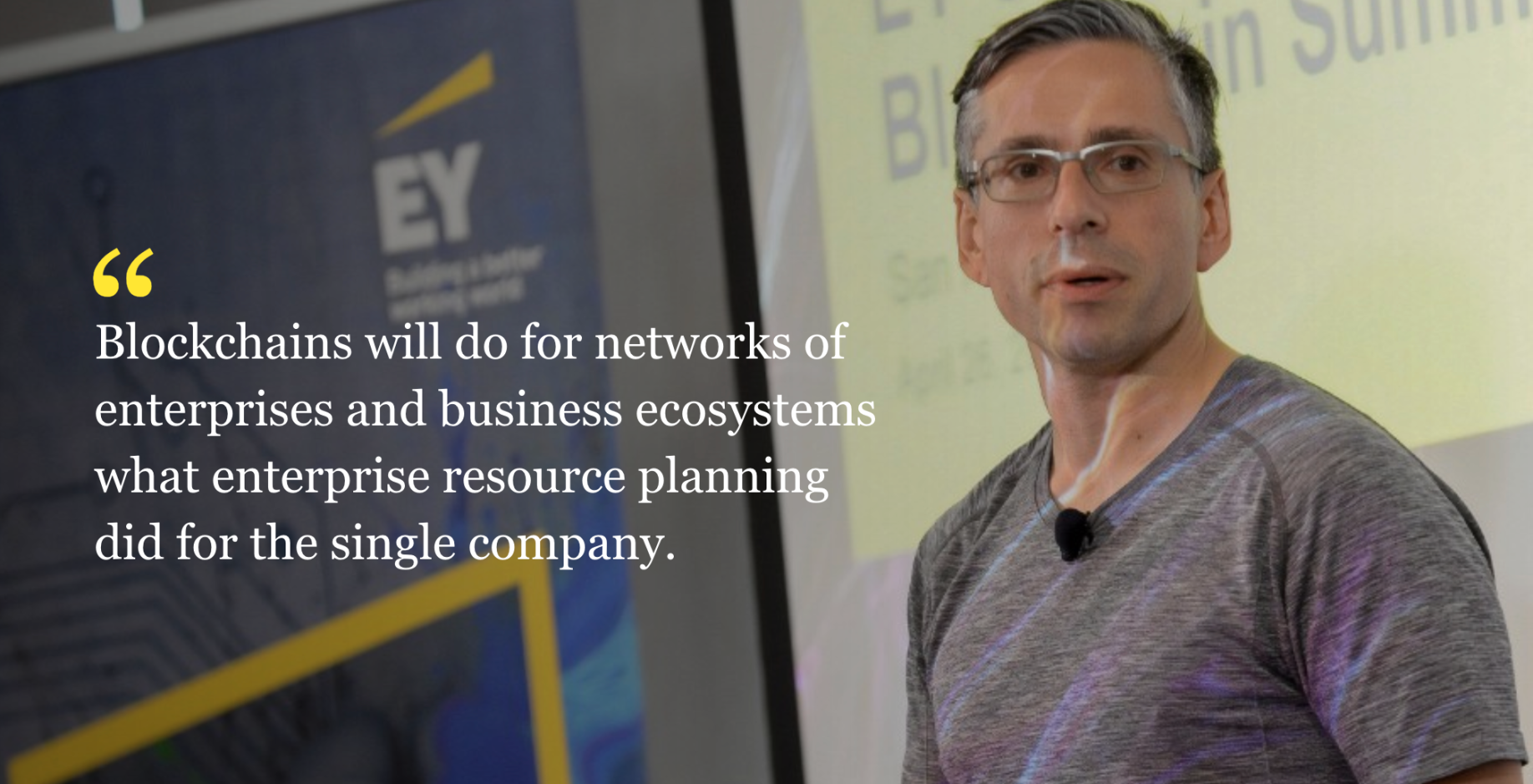Ethereum will fix enterprise tech

Gitcoin Grants Round 8 ends tomorrow! Donate 1 Dai and it’s matched w/ $43. Last chance!
Dear Bankless Nation,
It’s clear Ethereum has found product market fit with money and finance.
But what about the enterprise? Enterprise use cases were one of the catalysts of the 2017 bull run. It was the idea that large corporations could use Ethereum block space to solve a range problems spanning from supply chain to interoperability.
Is this real?
Where’s the adoption? Microsoft, EY, what have all these companies been doing?
Well…they’ve been heads down building Baseline Protocol. Baseline is Ethereum-based technology they believe can serve as a backbone for every business relationship across the globe. They believe public blockchains can fix enterprise tech.
We asked Paul Brody the Global Blockchain Leader at EY to tell us more.
Let’s hear the enterprise case for Ethereum.
- RSA
🙏 Sponsor: Argent – DeFi in a tap (👈 go download this wallet now - RSA)
THURSDAY THOUGHT
Guest Writer: Paul Brody, Principal & Global Blockchain Leader at EY
Enterprise tech is incomplete. Public Blockchains will fix that.
Public blockchains, specifically Ethereum, are set to become the main mechanism that companies use to manage and coordinate their business relationships with each other.
This is the public vs private blockchain bout.
In the world of information technology, this is called Middleware, and it’s just a fancy name for a set of tools that connect one system to another. The difference this time is that public blockchains will take what has historically been of limited scope or highly customized and turn it into a standardized, flexible, and scalable set of tools.
Right now, we can already see the very specific use cases for blockchain technology in the enterprise emerging, each with its own specific return on investment.

Public Blockchains in the Enterprise
The most popular by far is using blockchains to trace product or asset history. Our clients use it for everything from tracking blood donations to vaccine safety to verifying the history of a bottle of wine. The tamper proof nature of public blockchain transactions and it’s continuity of information across company boundaries makes this very attractive when authenticity and verifiability creates value or safety.
The second emerging use case is execution of enterprise business contracts. While most consumer transactions are relatively simple fixed prices and payments, enterprise transactions often involve complex sets of rules, many individually negotiated.
Blockchain-based smart contracts make it possible to encode each agreement as unique and execute it reliably every time and to do so in a way that is verifiable and inspectable by all the parties involved, not just one party in whose ERP system the code resides. EY is doing this with Microsoft for software licensing agreements and a public version of the same technology can be used for implementing enterprise purchasing agreements.
Taken together, these two use cases each represent one half of what needs to be shared between companies: facts, such as product history and location, and process rules, such as volume discounts and authorized buyers. Shared facts and shared process are the foundation of both all internal enterprise operations systems and all business agreements between companies.
What This Means for the Future
My own expectation is that these simple use cases of product traceability and contract execution will mature and scale quite rapidly and widen the scope of enterprise adoption. The most direct path I see in the near term is linking up the physical supply chain.
If you have all the information you need for to understand the history of a product, that means you also have all the information you need to understand your product inventory levels and set up smart contracts that re-order supplies and make sure you’re getting the best negotiated price.
Adoption in the enterprise is driven by return on investment, and the question that has to be asked is why use a public blockchain when existing, non-blockchain systems can do it?
The answer is that the alternatives are either very scalable but not flexible or very flexible and not scalable. Electronic Data Interchange (EDI) is a massively scalable and still widely adopted system of business messaging that can be used for everything from purchase orders to inventory updates. But it can only really do point to point messaging and doesn’t support shared business logic. It’s scalable but not flexible.
Enterprise and supplier portals support complex logic, shared information and process, but everyone has their own and there are few, if any, real standards. For companies that have strong and high value relationships with each other, the fixed cost of integration (in the hundreds of thousands of dollars) is worth it. For everyone else, it’s manual data entry in a web form or emailing spreadsheets.
Powerful, flexible (in some ways), but not scalable and definitely not cheap.
Of course, we could all share one big industry data portal. Flexible, scalable, and the recipe for an extremely powerful monopoly to emerge. No takers for that bad deal.
This is what makes Public blockchains a compelling solution to the problem of cross-enterprise integration: they can offer scalability and standardization with flexibility, all in an environment that cannot be monopolized by a single controlling entity.
The Road to Enterprise Adoption
Ultimately, I believe that any business process that involves shared facts and logic, especially between more than two parties, will be more efficiently and effectively executed on a public blockchain.
This technology will take time to mature, however, both in terms of the volume of transactions that can be handled and the level of complexity that can be implemented in a digital contract without inviting too much security risk. (More rules means more code and therefore more opportunities for hackers.)
Since no ecosystem or technology emerges fully formed or massively scalable, my expectations assumes that enterprises will want to see systems and rules that have been battle hardened and step into them gradually. Simpler contract and business models, like inventory management and replenishment, are likely to get faster adoption than very complex systems, like insurance contracts, which have lots of business rules in them.
With each step along the way, we will get better at defining more of these simple Lego-like components of existing enterprise processes that can do one thing very well, like define a product, or implement a process, such as ordering a replacement when inventory gets low.
And that is just the beginning. Because inevitably, after having snapped everything together, enterprises will start re-stacking and re-arranging the Legos into something that no longer looks like the picture on the box.
What happens then is unpredictable.
Just like with other technologies, complex ecosystems tend to emerge from simple building blocks. You can trace a line from restaurants that have no seats and only serve the customers of food delivery apps run by ride sharing networks all the way back, one step at a time, to GPS, credit cards, and wireless data.
Every step along the way was logical and incremental, and the end result was still transformational.
Action steps
- Identify where enterprises can leverage and benefit from public blockchains
- Research Baseline Protocol, a suite of tools for enterprises to build on Ethereum
Author Bio
Paul Brody is a Principal & Global Blockchain Leader at EY, a global leader in assurance, consulting, strategy and transactions, and tax services. The company has been building Baseline Protocol, a suite of tools allowing enterprises to build and deploy procurement and other business processes securely and privately on the public Ethereum blockchain.
Subscribe to Bankless. $12 per mo. Includes archive access, Inner Circle & Badge.
🙏Thanks to our sponsor
Argent
You were promised the future of money. Instead you got '90s banking UX and a paper password. Enough is enough. Argent protects your assets and gives you peace of mind. Earn interest and invest in a tap. No seed phrase. No problem. This is one of the best DeFi mobile wallets in the game today. Start exploring DeFi on the go with Argent. 🔥

Argent just added even more…
🔥 Yearn Vaults live! Automatically earn yield on your assets. Simply choose a Vault and amount to invest, and Yearn handles the rest.
🔥 Balancer live! Earn BAL tokens by providing liquidity.
- RSA
Not financial or tax advice. This newsletter is strictly educational and is not investment advice or a solicitation to buy or sell any assets or to make any financial decisions. This newsletter is not tax advice. Talk to your accountant. Do your own research.
Disclosure. From time-to-time I may add links in this newsletter to products I use. I may receive commission if you make a purchase through one of these links. I’ll always disclose when this is the case.